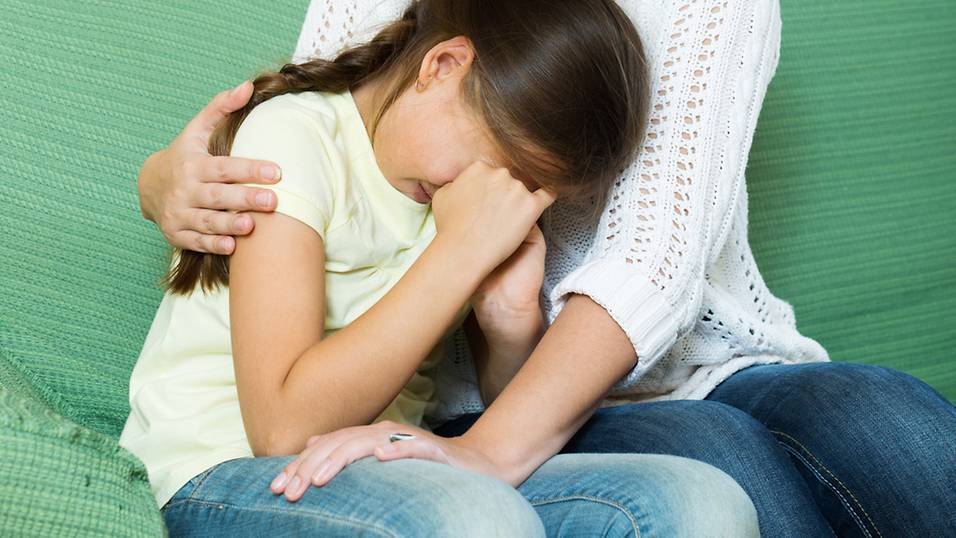So, his grades aren’t stellar ― now’s the time to boost his self-esteem and reassure him of your love!

It’s a given ― the Primary School Leaving Examinations (PSLE) are a stress-filled time for parents and kids alike. After all, your child’s immediate future hinges on his performance. For Paulyn Goh, mum to Jeremy, 12, her biggest worry is that her son makes it to a decent school.
For your kiddo, his biggest fear is that his poor exam performance has let you and the family down. Since he is feeling guilty and miserable, it is crucial to handle this sensitive issue sympathetically.
Chong Ee Jay, a manager at TOUCH Family Services, has this advice:
1. Let him cry it out Embrace him and allow him to cry, so he’ll know that it is all right to feel bad if things don’t quite turn out as planned.
2. Acknowledge the situation Keep calm, avoid showing signs of frustration and give your child the time and space he needs to process his feelings.
3. Monitor closely Junior might not want to go into details at first. If so, keep a watchful eye on his behaviour (both offline and online activities) in the days following the results.
4. Find an appropriate time to talk You’ll need to make the environment safe and comfortable for him to air his thoughts and feelings with you at an appropriate time. Some might find it more relaxing to talk before bedtime, others might prefer to do so while engaging in their favourite activity.
Keep calm, avoid showing signs of frustration and give your child the time and space he needs to process his feelings.
5. His results don’t define him Tell him the grades are just a means to help him decide which secondary school to go to, but that he will surely get into a school.
6. Good grades alone does not make a person Remind junior that it’s more important to have good character as a person with good grades cannot compare with someone who has good values.
7. See it as a teachable moment Explain to your child that his performance is proof that sometimes in life. Chong points out, “We may be disappointed at how our efforts turn out differently from our expectations.” What matters is that we soldier on and keep trying to improve.
8. Remind him that this will make you all stronger as a family Showing your support to him in such tough times won’t just help him regain his confidence, it’ll also make the family stronger.
9. Other people are going to say what they want Tell your child that while he cannot control what people might do or say about his results, he can control his own feelings and thoughts.
10. Inspire them Tell him that one isn't useless simply because of poor school results ― mention Microsoft’s Bill Gates and Facebook’s Mark Zuckerberg, college dropouts who have achieved phenomenal success.

Ways to help junior stop moping…
Making sure he is active will distract him, plus help him rebuild his self-confidence. Who knows? He might even end up finding his passion! So, let him:
* Do household chores Give him chores, or a task he is really good at like taking care of his younger siblings or planning an activity. He needs to feel a sense of accomplishment.
* Take part in outdoor activities like obstacle courses On completing the tasks, he should feel a sense of achievement, plus his confidence in his skills will be restored.
* Volunteer Serving the underprivileged and less-fortunate can help him see past his predicament ― he’d be grateful for what he has and where he has come from.
* Attend motivational courses Your child may relate better to other mentors like older brothers and sisters who might have gone through similar experiences. Public-speaking courses can help your child build his self-esteem and hone his communication skills.
Through his blues, your kiddo’s immature thought process might lead him to think suicide is the only way out of this mess. What’s worse, Chong notes, “What [children] know about suicide is relatively emotional or based on what they read or see on the Internet or media, which likely is not accurately portrayed.”
“It is [critical] to provide [an environment for] caring, loving and open communication channels for children to share their emotions.”
Be alert to these signs that your kid might be thinking of hurting himself:
* Talks about dying or suicide Any mention of dying, disappearing, jumping, shooting or other types of self-harm, especially in a detailed manner.
* Change in personality Sad, withdrawn, irritable, anxious, tired or apathetic, displays angry and aggressive behaviour.
* Change in behaviour Difficulty concentrating on routine tasks, acts erratically, harms self or others.
* Change in sleep patterns Suffers insomnia, often with early waking, oversleeping, has nightmares.
* Change in eating habits Appetite and weight loss, or overeating.
If your child expresses thoughts of suicide, you should remain calm and focus on helping junior share his thoughts and emotions. Stick to questions that will encourage him to explain why he thinks that killing himself is a solution. Remember to play the role of a listening ear and not confront him emotionally as this may seem like you’re belittling the issue and he may shut up.
Chong advises, “More importantly, it is [critical] to provide [an environment for] caring, loving and open communication channels for children to share their emotions.”
Chong Ee Jay is a manager at TOUCH Family Services.
Photos: iStock
Like us on Facebook and check SmartParents regularly for the latest reads!
Check these features out, too…
10 steps to raising a money-smart kid